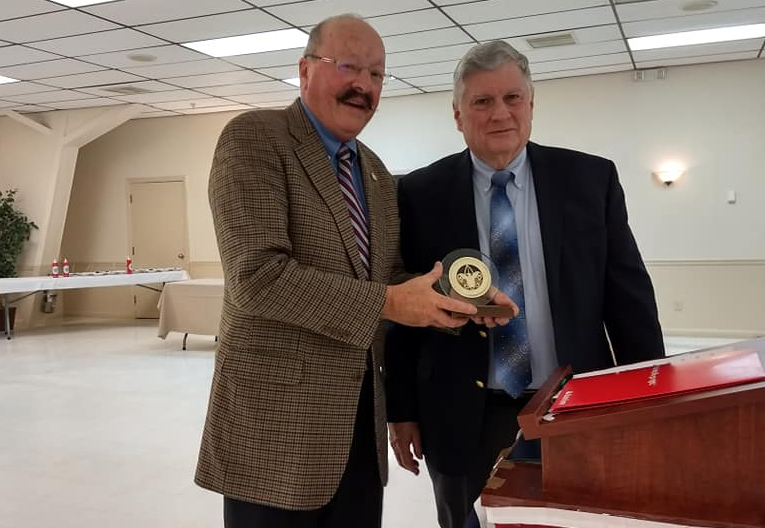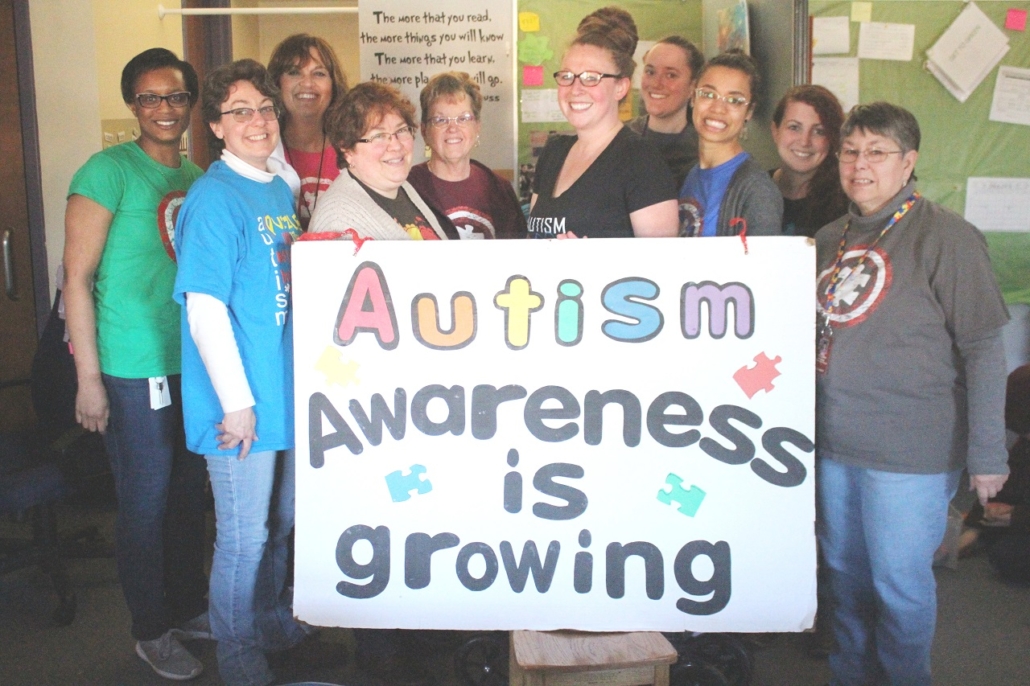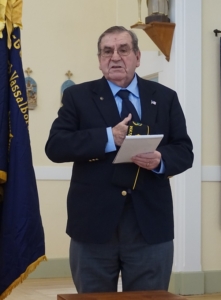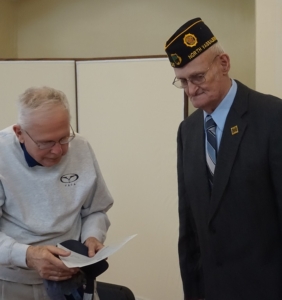STATE OF MAINE
PROBATE COURT
COURT ST.,
SKOWHEGAN, ME
SOMERSET, ss
NOTICE TO CREDITORS
18-A MRSA sec. 3-801
The following Personal Representatives have been appointed in the estates noted. The first publication date of this notice April 11, 2019.
If you are a creditor of an estate listed below, you must present your claim within four months of the first publication date of this Notice to Creditors by filing a written statement of your claim on a proper form with the Register of Probate of this Court or by delivering or mailing to the Personal Representative listed below at the address published by his name, a written statement of the claim indicating the basis therefore, the name and address of the claimant and the amount claimed or in such other manner as the law may provide. See 18-A MRSA 3-804.
2019-064 – Estate of RONALD M. HARRIS, late of Madison, Me deceased. Nash A. Dsylva, 4736 East Salle Drive, Batavia, NY 14020 appointed Personal Representative.
2019-066 – Estate of STEVEN J. GENTILI, late of Mercer, Me deceased. Angela Gentili, 2500 Level Hill Road, Palermo, Me 04354 appointed Personal Representative.
2019-070 – Estate of JAMES W. YORK, JR., late of Pittsfield, Me deceased. Matthew J. York, 11 Sequoia Lane, Scarborough, Me 04074 appointed Personal Representative.
2019-071 – Estate of TIMOTHY W. PROVENCHER, late of Cornville, Me deceased. Nikki L. Provencher, 1350 Molunkus Road, Cornville, Me 04976 and Joshua P. Provencher, 1350 Molunkus Road, Cornville, Me 04976 appointed Co-Personal Representatives.
2019-073 – Estate of DALE G. POULIN, late of Skowhegan, Me deceased. Sheila Poulin, 28 Dawes Street, Skowhegan, Me 04976 appointed Personal Representative.
2019-074 – Estate of BETH E. CHAPPO, late of Cornville, Me deceased. Gwendolyn L. Pomerleau, 227 Moores Mill Road, Skowhegan, Me 04976 appointed Personal Representative.
2019-079 – Estate of JOHN W. HLADINEC, late of Athens, Me deceased. Maureen C. Hladinec, 1048 Mayfair Drive, Rahway, NJ 07065 appointed Personal Representative.
2019-082 – Estate of CAROLYN L. WAUGH, late of Solon, Me deceased. Frances W. Flick, PO Box 3, Athens, ME 04912 appointed Personal Representative.
2019-085 – Estate of HARRY W. DIXON, JR., late of Skowhegan, Me deceased. Carol Corson, 17 Chandler Street, Skowhegan, Me 04976 appointed Personal Representative.
2019-086 – Estate of GARY A. MALBON, late of Madison, Me deceased. Troy A. Malbon, 69 Anthony Avenue, Topsham, Me 04086 appointed Personal Representative.
2019-091 – Estate of BARBARA GRIFFETH, late of Skowhegan, Me deceased. Alan J. Griffeth, 40 St. James Street, Skowhegan, Me 04976 appointed Personal Representative.
2019-093 – Estate of THOMAS J. SEAMON, late of Starks, Me deceased. Angel M. Vinton, 181 Marston Road, Gardiner, Me 04345 appointed Personal Representative.
2019-094 – Estate of ALVERNA E. MURRAY, late of Cornville, Me deceased. Angela Wentworth, 649 Mutton Lane, Clinton, Me 04927 and Richard Bunt, 1726 East Ridge Road, Cornville, Me 04976 appointed Co-Personal Representatives.
2019-072 – Estate of MICHAEL C. HANDY, late of Harmony, Me deceased. Adrianna Handy, 410 Ripley Road, St. Albans, Me 04971 appointed Personal Representative.
2019-095 – Estate of ROBERT A. CARIGNAN, late of Hartland, Me deceased. Mary Fortier, 51 Halifax Street, Winslow, Me 04901 appointed Personal Representative.
2019-096 – Estate of ALEXANDRINE M. WHITTEMORE, late of Skowhegan, Me deceased. James G. Whittemore, PO Box 534, Skowhegan, Me 04976 appointed Personal Representative.
2019-098 – Estate of EUGENE V. HUTCHINS, late of New Portland, Me deceased. Margaret Warman, 21 Turkey Lane, Orrington, Me 04474 appointed Personal Representative.
2019-102 – Estate of JANASE M. RICH, late of Hartland, Me deceased. Bobbi-Jo Rich, 445 n Dixmont Road, Troy, Me 04987 appointed Personal Representative.
2019-106 – Estate of DOREAL B. BAKER, late of New Portland, Me deceased. Danielle A. Rawson, PO Box 134, New Portland, Me 04961 appointed Personal Representative.
2019-107 – Estate of MARY HELEN THORNE, late of St. Albans, Me deceased. James T. Thorne, 44 Corinna Road, St. Albans, Me 04971 appointed Personal Representative.
To be published on April 11, 2019 & April 18, 2019
Dated: April 8, 2019 /s/ Victoria Hatch,
Register of Probate
(4/18)
STATE OF MAINE
PROBATE COURT
41 COURT ST.
SOMERSET, ss
SKOWHEGAN, ME
PROBATE NOTICES
TO ALL PERSONS INTERESTED IN ANY OF THE ESTATES LISTED BELOW
Notice is hereby given by the respective petitioners that they have filed petitions for appointment of personal representatives in the following estates. These matters will be heard at 10 a.m. or as soon thereafter as they may be April 24, 2019. The requested appointments may be made on or after the hearing date if no sufficient objection be heard. This notice complies with the requirements of 18-A MRSA §3-403 and Probate Rule 4.
2019-077 – Estate of JAKOB BENJAMIN GRASS. Petition for Change of Name (Minor) filed by Patrice Harris, 157 Middle Road, Fairfield, Me 04937 requesting minor’s name be changed to Jakob Benjamin Harris for reasons set forth therein.
2019-080 – Estate of CHRISTOPHER THOMAS BREINGAN, Petition for Change of Name (Adult) filed by Christopher Thomas Breingan, 54 Hathaway Street, Skowhegan, Me 04976 requesting his name be changed to Christopher Charles Cole for reasons set forth therein.
2019-090 – Estate of ELIZABETH MEGYESE KING, Petition for Change of Name (Adult) filed by Elizabeth Megyese King, 390 Russell Road, Madison Me 04950 requesting her name be changed to Elizabeth Megyese for reasons set forth therein.
2019-099 – Estate of AMBER CAROLYN SHEPPARD. Petition for Change of Name (Adult) filed by Amber Carolyn Sheppard of 20 Island Avenue, Fairfield, Maine 04937 requesting that her name be changed to Amber Carolyn Willett for reason set forth therein.
2019-100 – Estate of JOSIE LIBBY. Petition for Change of Name (Adult) filed by Josie Libby, 266 Main Street, Pittsfield, Me 04967 requesting her name be changed to Josie Kathryn Libby for reasons set forth therein.
2019-101 – Estate of JAYDEN CHARLES THOMAS SZABO, minor of Pittsfield, ME 04967. Petition for Change of Name (Minor) filed by petitioner Jessica Lary, 129 Greeley Street, Pittsfield, Me 04967 requesting minor’s name be changed to Jayden Everett Hunter Lary for reasons set forth therein.
2019-103 – Estate of SCOUT GRACE CLAYTON, minor of Cornville, Me. Petition for Change of Name (Minor) filed by petitioners Bethany and Austin Clayton, PO Box 451, Skowhegan, ME 04976 requesting minor’s name be changed to Scarlett Grace Clayton for reasons set forth therein.
Dated: April 8, 2019
/s/ Victoria Hatch,
Register of Probate
(4/18)















 The Town Line’s ice out judge has declared that ice officially went out of China Lake on Friday, April 12, 2019. The judge’s decision is final.
The Town Line’s ice out judge has declared that ice officially went out of China Lake on Friday, April 12, 2019. The judge’s decision is final.